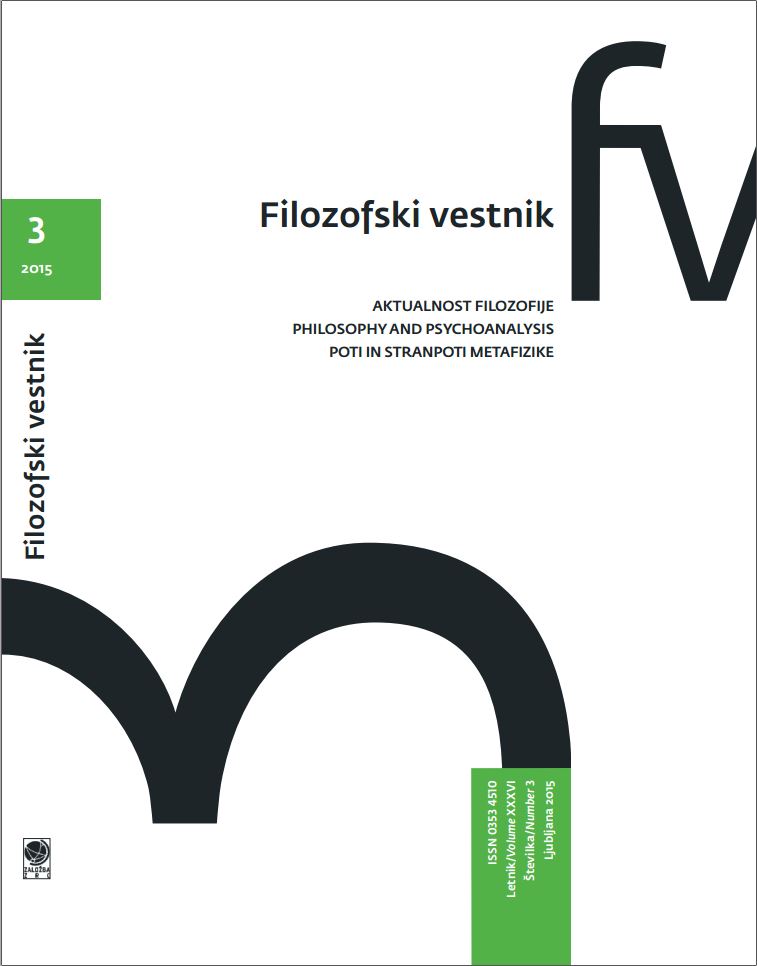Freud and Derrida: writing and speculation (or when the future irrupts in the present)
Keywords:
Freud, Derrida, speculation, writing, hauntology, BeingAbstract
In this paper I analyse the questions of psychoanalysis that excited Derrida’s philosophical thought, I would point out three as the most fundamental that, in addition, belong altogether to the realm of the “speculative/specular” in its spectral as well as economic senses. These are: the virtuality of the psyche, the idea of the mnemic trace and that of “deferral” (après-coup). In To Speculate — on “Freud”, it becomes very clear that Derrida’s reflexive and critical exercise does not have only one direction, i.e. at the same time that, from a deconstructive interest, he criticises the metaphysical assumptions of psychoanalysis, Beyond the Pleasure Principle reflects on his philosophical thinking an image of Being as a speculative economy. Moreover, the Freudian psyche is no longer unveiled as an a priori, but as a product of the reflection of more than one “mirror”. The interactions between the different psychic systems are, according to Freud, economic, but this economy is also speculative in more than one sense: first, the different systems are altered transversally and second, they negotiate in terms of expense, savings, and pain/pleasure future projections. Besides, the mnemic trace is, in Freud, the outcome of relationships between different forces of irruption and resistance whose result is never predictable. And finally, psychic time and the time of hauntological ontology are both non¬linear temporalities wherein the possibility of a future overflowing is always at play. In this sense, I will maintain that Derridian hauntology and Freudian meta¬psychology have a specular relationship.Downloads
Download data is not yet available.
Downloads
Published
2016-03-27
How to Cite
Martinez Ruiz, R. (2016). Freud and Derrida: writing and speculation (or when the future irrupts in the present). Filozofski Vestnik, 36(3). Retrieved from https://ojs.zrc-sazu.si/filozofski-vestnik/article/view/4528
Issue
Section
Philosophy and Psychoanalysis
License
Authors guarantee that the work is their own original creation and does not infringe any statutory or common-law copyright or any proprietary right of any third party. In case of claims by third parties, authors commit their self to defend the interests of the publisher, and shall cover any potential costs.
More in: Submission chapter





